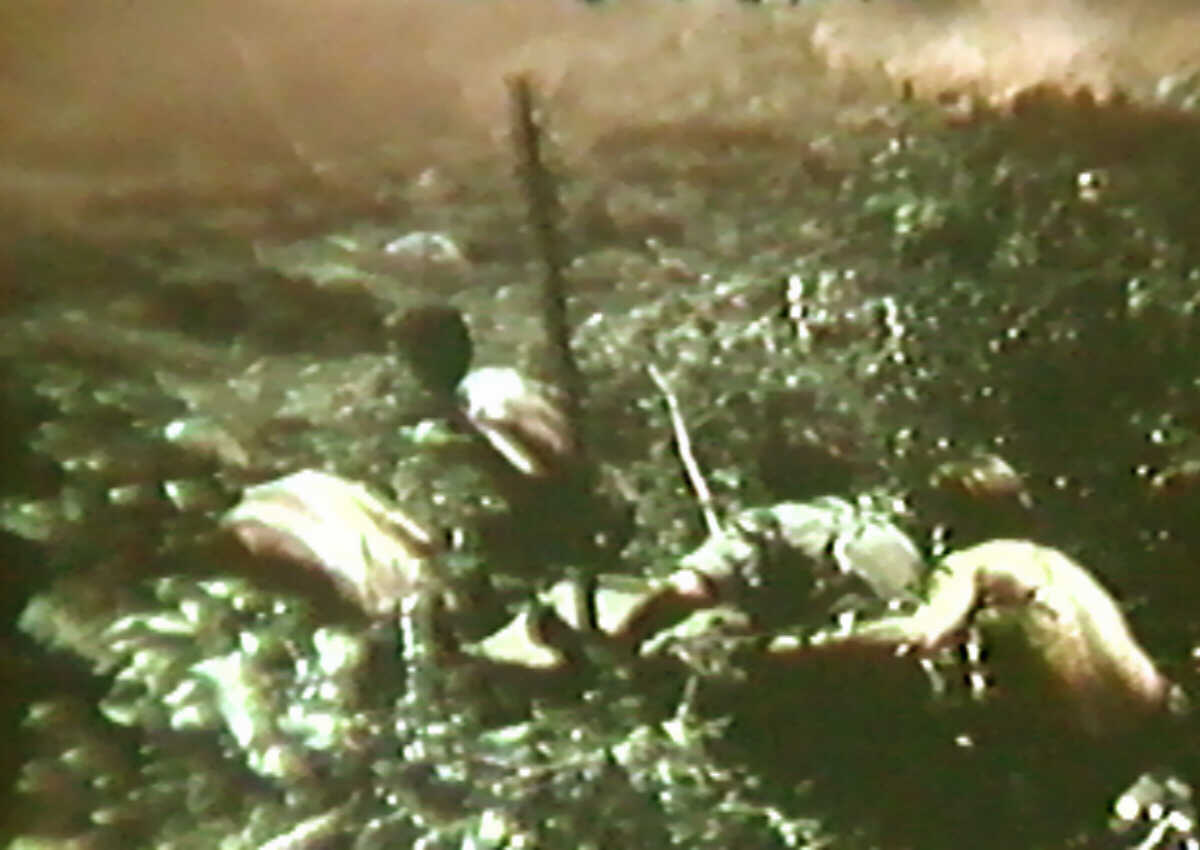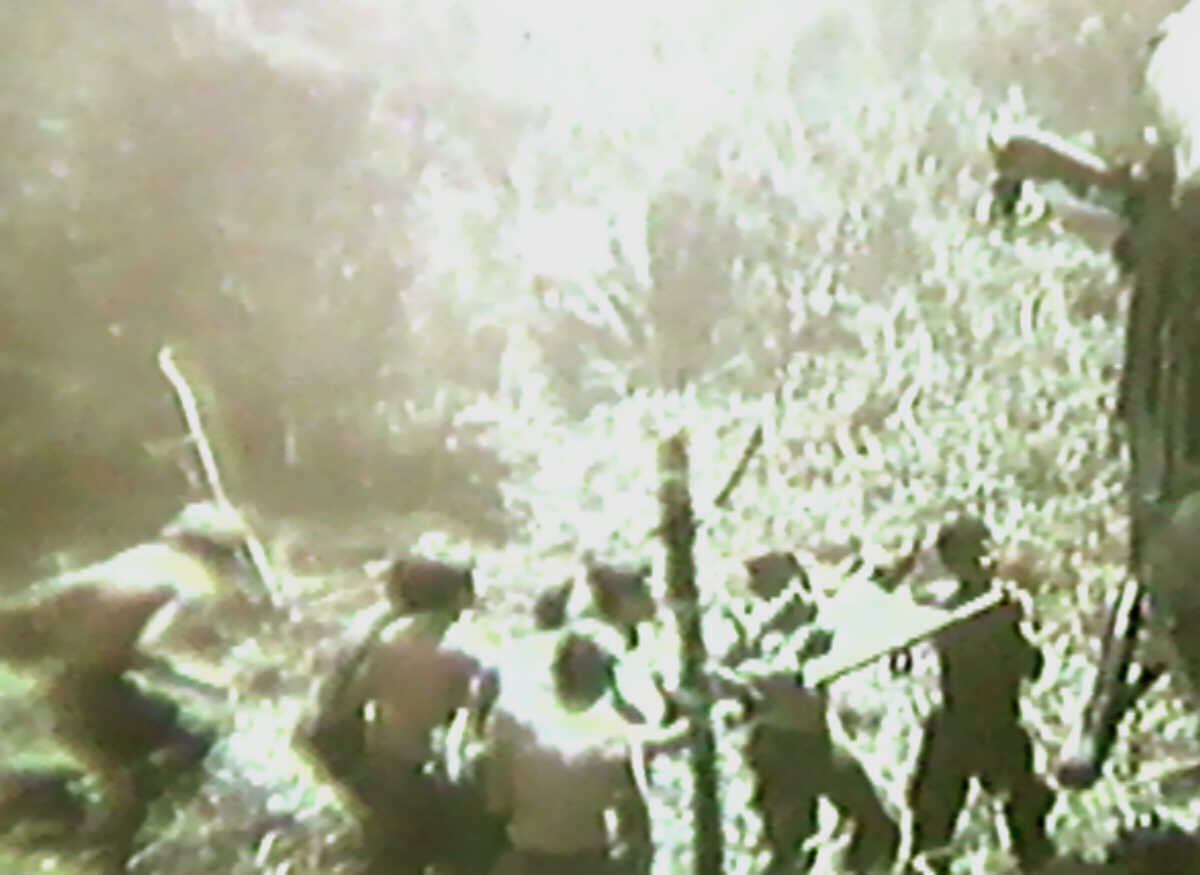Dustoff
-- Emergency Medical Evacuation
The following sequence of photographs taken on 18 December 1970 was
all too familiar
in the 1st Battalion 6th Infantry tactical area of operations in Vietnam
in 1970. Over
400 soldiers in the Battalion were killed or wounded in that
year. Practically all
were dustoff cases.
Requests for dustoff support were sent by radio on a primary frequency
of 46.90 mhz (or
alternate frequency 67.55 mhz). After supplying their radio callsign
and location coded for
map reference, soldiers on the ground were supposed to use the following
format to request aid:
1. Category (Urgent, Priority, Routine)
2. Number of casualties
3. Type (US, ARVN, VC, VN)
4. Nature of wounds (gunshot, fragmentation, multiple, sucking
chest, fractures, etc.)
5. Number litter; number ambulatory
6. Cause -- contact with enemy or boobytrap
Additional information was to be provided to the inbound dustoff helicopter.
1. The exact location (marked by colored smoke, color panel, mirror,
strobe light, etc.)
2. Status of PZ -- secure, or unsecured
3. Latest contact with the enemy
4. Hazards on the PZ (e.g. trees, enemy positions, etc.)
5. Recommended approach
Once the dustoff aircraft arrived on the scene in the 1st Battalion
6th Infantry area of operations
in 1970, it usually hovered a few feet off the ground rather than landing.
This was done to avoid
detonating additional booby traps that may have been set in potential
landing sites adjacent to
areas where booby traps were set. Medical personnel on board
the helicopter generally
would wait for the soldiers on the ground to carry or assist the wounded
to the aircraft.
Another wounded medic was of little use to those soldiers previously
injured or wounded.
In this sequence, captured by a US Army motion picture photographer
[SP4 Williams, SEPAC
Project No. 330, Subject 59th Engineer Company Land Clearing, Location
Chu Lai] an injured
soldier is evacuated from the land clearing "cut" in the vicinity of
Hill 76, BS 683 836 with the
assistance of soldiers who were providing security at the site.
Photos provided by Wayne
Johnston (1-6 Inf 1970-71); converted from 16 mm film/video III LC
56352 available at the
National Archives II, College Park, MD.

Dustoff medical evacuation helicopter on final approach into an PZ
marked by red smoke.

Soldiers move toward the center of the PZ with the injured soldier
on a stretcher.

Medivac aircraft hovers over the PZ as soldiers approach.

As the helicopter hovers over the PZ, soldiers lift the stretcher and
place their injured comrade
aboard. In ten to fifteen minutes, he will receive emergency
care at the 91st Evacuation Hospital in
Chu Lai.
Use browser back arrow or link to Photos,
Stories,
or 1st Bn 6th Inf Home Page or
Site Map